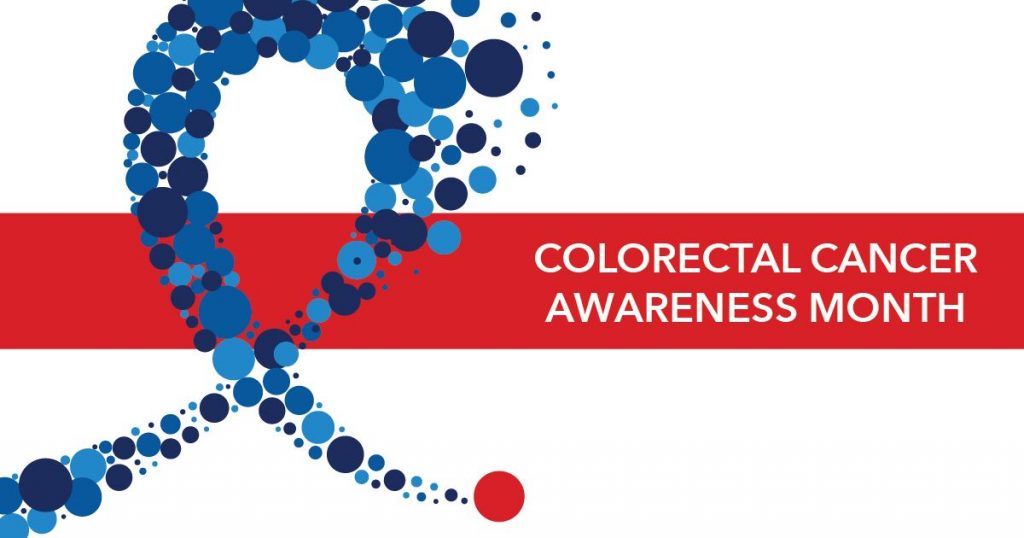
Colorectal Cancer Awareness Month
“When caught in its earliest stages, colorectal cancer can be treated very effectively. What’s more, when polyps that can turn into cancer are found and removed early, colorectal cancer can actually be prevented.”
What if you knew that one of the leading causes of cancer-related deaths was also one of the most preventable?
Colorectal cancer is the second most common cause of cancer death in the U.S when men and women are combined, according to the National Colorectal Cancer Roundtable. In 2020, an estimated 104,610 new cases of colon and 43,340 cases of rectal cancer are expected to be diagnosed and an estimated 53,200 deaths from colorectal cancer are expected to occur. (Colon and rectal cancer are often grouped together because they have many similarities.)
Many lifestyle choices, which can be changed, have been linked to a colorectal cancer diagnosis, including being overweight or obese, lack of physical activity, certain types of diets, smoking, and heavy alcohol use. In addition, there are unchangeable risk factors that can lead to colorectal cancer, including being older (over 50), a personal history (or family history) of colorectal polyps or colorectal cancer, inflammatory bowel disease, having an inherited syndrome, certain racial and ethnic backgrounds, and having type 2 diabetes.
The American Cancer Society (ACS) states that symptoms of colorectal cancer may be subtle at first but may eventually include:
- Change in bowel habits, such as diarrhea, constipation, or narrowing of the stool, that lasts for more than a few days
- Need to have a bowel movement that’s not relieved by having one
- Rectal bleeding with bright red blood
- Blood in the stool, which may make the stool look dark
- Cramping or belly pain
- Weakness and fatigue
- Unintended weight loss
If you’re having any of these symptoms, the only way to know what is causing them is to see your doctor and be tested, if necessary. Colorectal cancer screening tests can find precancerous polyps so they can be removed before they turn into cancer, when treatment often leads to a cure.
The ACS recommends that if you are 50 and older, you need to have a colorectal screening test and then keep getting screened regularly until you turn 75 years old, and for some people when they are older than 75. Having your doctor test for blood in your stool or getting a colonoscopy can prevent up to 60 percent of colorectal cancer deaths. Also, if you are younger than 50 and have an elevated risk for colorectal cancer because of a personal or family history of colon cancer, you should talk with your healthcare provider about which test is best for you.
If you need a family medicine provider to talk to, please visit BinghamMemorial.org/Family or call (208) 785-4100 to schedule an appointment with a provider nearest to you.
Our content is reviewed regularly and is updated when new and relevant evidence is made available. This information is neither intended nor implied to be a substitute for professional medical advice. Always seek the advice of your physician or other qualified health provider prior to starting any new treatment or with questions regarding a medical condition.



